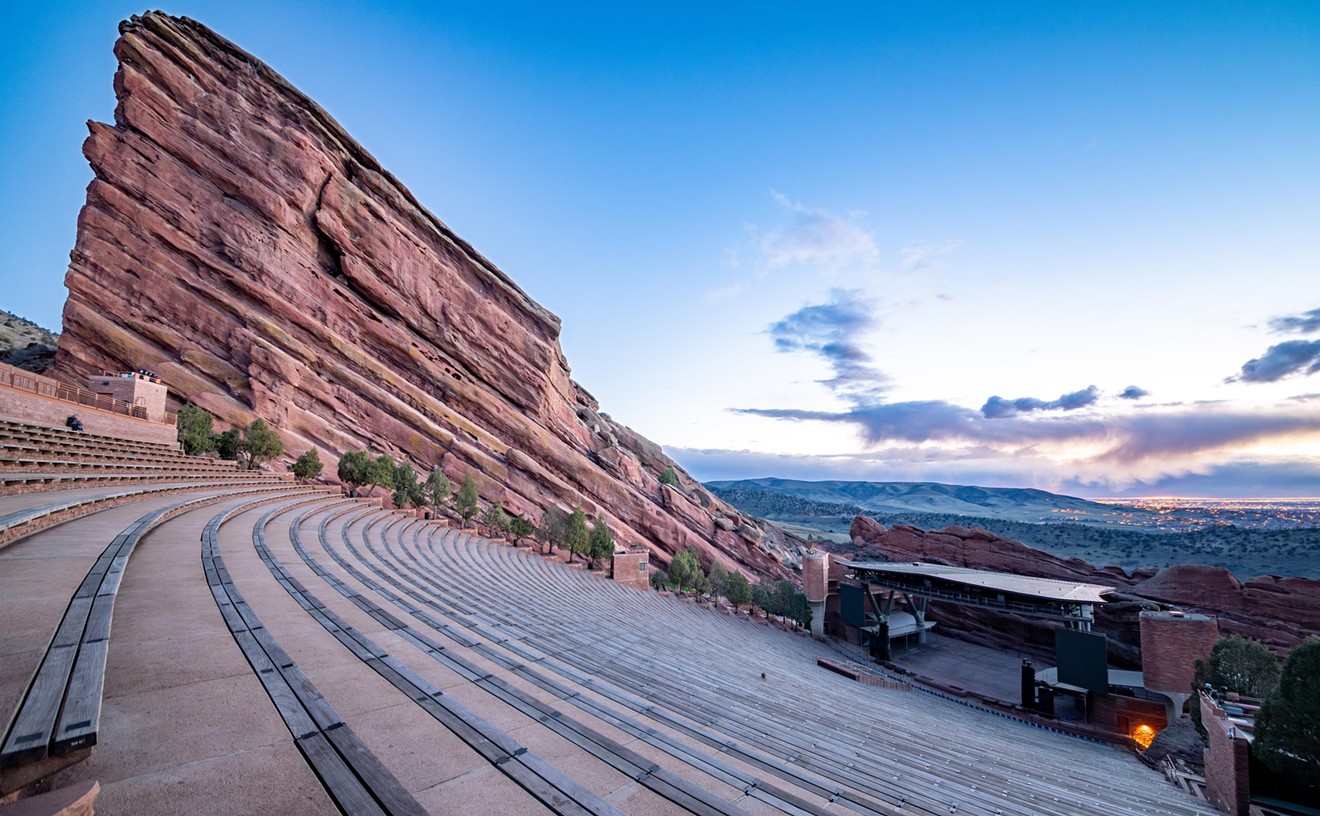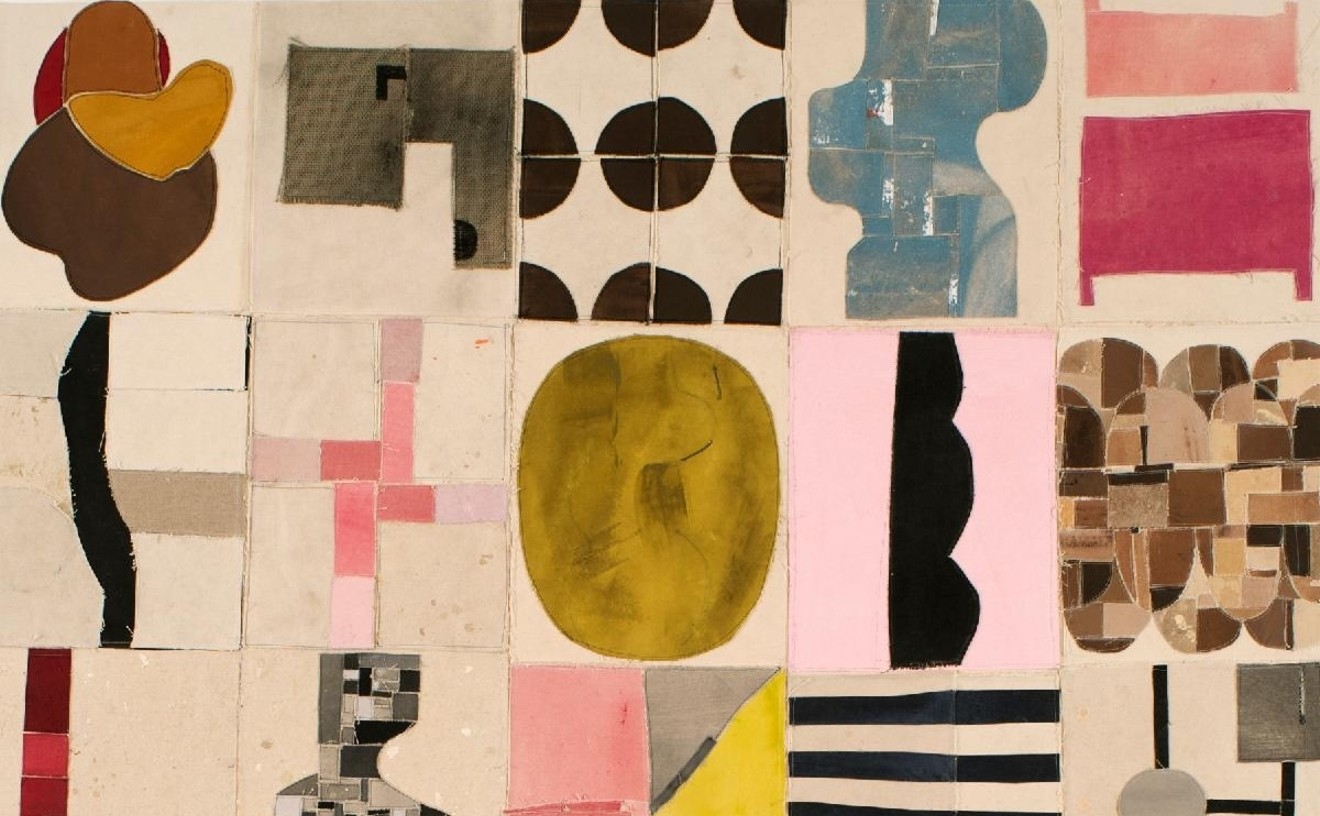And today this art activism comes to Denver. In advance of a free Guerrilla Girls performance tonight at Malone Theater at the Cable Center on the University of Denver campus, founding member Frida Kahlo spoke with Westword about the group's three decades of work and the current state of feminism.
See also: Pussy Riot: A Punk Prayer is a great reminder of our own freedom of speech in America
Westword: You are a founding member of Guerrilla Girls, which has been around for almost thirty years. What was the catalyst for you?Frida Kahlo: I am one of the founding members -- I'm kind of a lifer. Kathe Kollwitz who will also be in Denver; she and I had known each other just as artist friends, and together we went to a protest at the Museum of Modern Art. We realized the show they were doing there in 1985, a show that was supposed to be a general survey of contemporary art from all over the world, out of almost two hundred artists, there were only seventeen women.
We had been in the art world; we knew that there were equal numbers of men and women artists. We had also been through art school so we also knew that for decades, the majority of graduates of art schools were female. So we couldn't figure out what was happening to women artists and we just wanted to publicly ask that question.
The first protest at the Museum of Modern Art was kind of old-fashioned, with placards and chants and a picket line and it really didn't make much of an impact. So we vowed that we would find some way to make this issue something people were thinking about and talking about and perhaps, trying to solve.
That's interesting -- sometimes even when we are being radical, we tend to use a formulaic approach. Like the picket line you're talking about.
Well, I think in the art world it is different because there are people who make the art, people who consume the art and the people who love the art -- and they may overlap but they are not the same. There's a handful of people who buy art, there are lots of artists who make art and there is an even larger group of people who love art and go to museums. What we were doing with this sort of traditional picket line was we were asking people who go to museums to think about this.
What we realized is that most of them really trust museums and they thought that the art world was a meritocracy. Not too many of them were actually involved in the art world, but they were onlookers and they just really thought that the curator of the Museum of Modern Art was making decisions based on some kind of impartial criteria, and who were they to question these professionals? What we wanted to do was ask the larger art community -- artists, collectors, curators -- why this situation exists.
How do you think the situation of representation stands today?
It's always three steps forward, two steps back. Things are better for women artists and artists of color than they have ever been. It's kind of a no-brainer now that you can't write a history of a culture without including all of the voices of the culture in that history. But that being said, the art world -- visual art -- has become a commodity. It's become this precious luxury item that wealthy people, the one percent, want to consume; they want to use it as a symbol of their high-minded awareness of culture. So, it's a problem. It has really made art like jewelry or furs. It's the kind of thing where people are more concerned with what art costs than what art is about.
I would say that the three steps forward is that everyone knows we have to include women and artists of color in history, but the two steps back is that the art world has become about money. It has become an instrument of the one percent, and it is really hard to combat that when everyone, even the New York Times when they write articles about art auctions, they talk about high prices, as though that is the way you decide which artists are most famous or most important. If we did that in literature or in film, it would be laughable because we would have been celebrating Danielle Steele.
There are other issues that have come up -- the issue of tokenism. If you show one woman or one artist of color and then think that the problem is taken care of, that's an issue. Also, there's this issue of a glass ceiling. Women and artists of color are allowed in the entry level, but they aren't allowed to go too far.
The idea that they can't or won't ever be considered "masters."
We need a new word for that, don't we? (Laughs.) "Seminal" -- that's the one that I think that's really funny. But I guess we're idealists in that we want the world to change, but we're realists because we realize that it's not going to happen overnight and it's never going to be perfect and there will always be new problems and challenges that will pop up.
We never really thought about tokenism -- we thought, artists of color will be admitted to museums and they will be selected. We had no idea that museums would show the same one or two woman artists over and over again or the same one or two artists of color over and over again. There's a lot still to be done.
This is such a broad question, but how to do you feel about where feminism is in 2014?
It's a little disturbing that the word or label "feminist" is still demonized -- we have so many more opportunities than we did twenty-five or thirty years ago and feminist thought and feminist fellowship and feminist activism has really changed the world. So many women have benefitted from that who are afraid to call themselves feminists because they think it makes them, first of all, male-haters. I don't know where they get that idea. Feminists love men and, actually, we want more male feminists. We think that it is really important.
Or (some women) may think that being a feminist will make them unpopular or will threaten their professional opportunities. I don't know where that comes from; it isn't the same in other cultures. In some ways, being called a feminist in Europe or in the developing world is an easier thing to do than to call yourself a feminist in the United States. We want to hone in on what that's all about and try to address it somehow.
What does a Guerrilla Girls presentation entail when you come to do an event like the one you're doing tonight in Denver?
It's a lot of things -- we have a playlist, a short video, we do some readings of misogynist hate speech through the ages. Then we talk about how we started and we take the audience through our evolution to show how we've kind of changed our thinking, how our work has changed. Then we usually do some kind of reading or presentation of the latest work that we've done. Then we engage the audience with a Q&A afterward.
Are you masked for all of Guerrilla Girls events? Why is anonymity important to you?
Oh, yes, we'll be in jungle drag. Early on we decided to be anonymous for self-serving reasons, because we were biting the hand that we wanted to feed us -- the art establishment, the art system. Then we soon realized that it was a great way of making the issues straightforward and not personal, so people couldn't say, well, "She's complaining about museums because she didn't get what she wanted (as an artist.)" So this way, there was no way to personalize it -- the press really likes to personalize women complaining about anything. While we were anonymous, we were all different levels of artwork, different ages, sexual orientations and ethnicities. We are very, very diverse and this way, anonymously, no one could really put a finger on any personal reasons for what we were doing. We were acting as a class. Being anonymous really helped us do that. Also, it turned into a shtick -- it was, in a way, a gimmick. But it was a gimmick that worked. That's when we realized that it really served our message in many of the ways that Pussy Riot, who were anonymous as well, did. They were very interested in our work and talked about it in their early presentations.Anonymity is a very strong thing and it has a strong history in American history. Anonymous free speech is protected free speech.
Speaking of Pussy Riot, Masha Alyokhina and Nadia Tolokonnikova's affiliation with the group was terminated through an anonymous letter, citing, among other things, the fact that the women are no longer anonymous. What do you think about that?
That was inevitable -- I don't think anyone can be blamed for it. Three of them were arrested, two of them served long prison sentences and when they came out, how could they go back and be part of an anonymous group? The one woman (Yekaterina Samutsevich) who was released early on parole, she can't really say anything -- she's on parole. When you're on parole your behavior and your actions are surveilled.
The other members of the group are free to do what they want and you know, these things happen to collective activist groups -- they always evolve and morph into one thing or another. The other two members have been given such special and unusual and horrible treatment, I don't think we expected them to go back to being who they were before. But they certainly have made the idea of feminist protest and the situation of dissidence in Russia a global issue.
Why did you choose Frida Kahlo as your moniker?
It was early on, at a time when Frida Kahlo didn't have the same kind of iconic reputation in the United States that she has now. I had read the first extensive biography of her just about the time the Guerrilla Girls were forming. I thought, I'm kind of a closet Latin trapped in the body of a Northern European. (Laughs) I loved her spirit, I loved her work, I loved everything about her. I also thought, wouldn't it be really scary for some of these people in the art world to think that Frida Kahlo's spirit is alive and well in the spirit and body of an anonymous protester? She's always been an icon in Mexico, but here it took a bit longer for her work to be understood.
Guerrilla Girls will be appearing at 7 p.m. tonight -- for free -- at Malone Theater at the Cable Center on the University of Denver campus. The event is sponsored by the University of Denver School of Art and Art History, the Gender and Women's Study Program, the Vicki Myhren Gallery and the Marsico Fund. For more information on Guerrilla Girls, visit the group's website.
Follow @WestwordCulture











